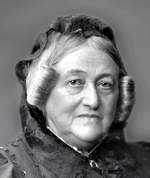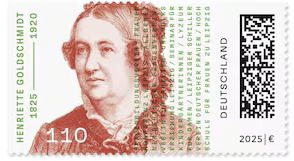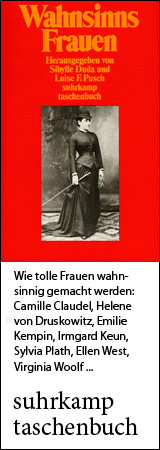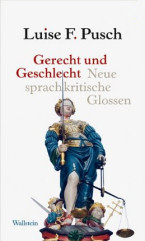Biographies Henriette Goldschmidt

(née Benas)
born on November 23, 1825, in Krotoschin near Posen, Prussia
died on January 30, 1920, in Leipzig, Germany
German social worker
200th birthday on November 23, 2025
Biography
Upon the death of Henriette Goldschmidt on January 30, 1920, Helene Lange, the most prominent representative of the women's movement at the turn of the century, wrote an obituary honoring the deceased. Outlining Henriette Goldschmidt’s accomplishments in concise words and with a restrained tone, she emphasized Goldschmidt's early involvement in the women's movement and her participation in the founding of the German Women's Association (German: Allgemeiner Deutscher Frauenverein). Goldschmidt’s greatest achievement—the establishment of a “university for women” in Leipzig—was mentioned only briefly with Lange noting that an obituary was “not the place to critically evaluate the idea.”
Henriette Goldschmidt was an enthusiastic supporter of Froebel's educational philosophy, and thus the university she founded aimed to equip mothers through seminars and lectures with the skills they needed to raise and educate their children. At the same time, the program was designed to prepare women for social work in their communities. Thanks to a generous donation from music publisher Henri Hinrichsen, the university admitted its first students in Leipzig in 1911. Henriette Goldschmidt, already very old at the time, was described by her contemporaries as still robust and mentally very alert.
Helene Lange's critical comment in the obituary was due to what she regarded as the misleading use of the term “university.” The institution Goldschmidt founded was not academic in its approach; the courses offered were of a practical nature and based on popular science rather than on any social science. Today such an educational institution would be called a vocational or technical college. Shortly after Goldschmidt’s death, the “university” was given a more appropriate name: the city authorities in Leipzig renamed it the Social Pedagogical Women's Seminary (Sozialpädagogisches Frauenseminar) in 1921. Today the street and a commemorative plaque at house number 20, where the women's college in Leipzig was located, commemorate Henriette Goldschmidt as the initiator of this women's project.
Henriette Goldschmidt was born on November 23, 1825, as the sixth child of the wealthy Jewish merchant family Benas in Krotoschin in the Prussian province of Posen. Both in her parents' home and later in her marriage to Rabbi Abraham Meier Goldschmidt in 1853, she felt connected to the spirit and ideas of the 1848 revolution. As reform-minded liberals she and her husband suffered all the more under the oppression of the Polish people by the Russian tsar. In Warsaw, Rabbi Goldschmidt looked after the German-Jewish community. The Goldschmidt family's apartment—Henriette raised three step-sons—was located so close to the Warsaw prison that the screams of prisoners being tortured behind its walls could be heard.
When Abraham Goldschmidt accepted a rabbinical position in Leipzig, Henriette experienced the move from the “hell of Warsaw” to the Saxon city in 1858 as a move to the “Promised Land.” Appreciating life in an intellectually open-minded city, the couple participated in the lively German-Jewish club life and became politically active in the democratic left where Henriette Goldschmidt met Louise Otto-Peters. In 1865 the two women founded the first organization in Germany committed to women’s education—the German Women's Association. Until the turn of the century, the women's association dealt with general topics at its conferences, particularly those relating to women's education and work. From 1901 onwards, its official program emphasized the involvement of women in community activities. Henriette Goldschmidt had already advocated in the early days of the association for the inclusion of women — “city mothers” who, much like the men known as “city fathers,” would work to better lives in their communities.
 Update 2025: On the occasion of Henriette Goldschmidt's 200th birthday on November 23, 2025, a special stamp was issued by Deutsche Post at the suggestion of FemBio e.V.
Update 2025: On the occasion of Henriette Goldschmidt's 200th birthday on November 23, 2025, a special stamp was issued by Deutsche Post at the suggestion of FemBio e.V.
(Text from 1999; translated with DeepL.com; edited by Ramona Fararo, 2025.
Please consult the German version for additional information, pictures, sources, videos, and bibliography.)
Author: Hiltrud Schroeder
If you hold the rights to one or more of the images on this page and object to its/their appearance here, please contact Fembio.



